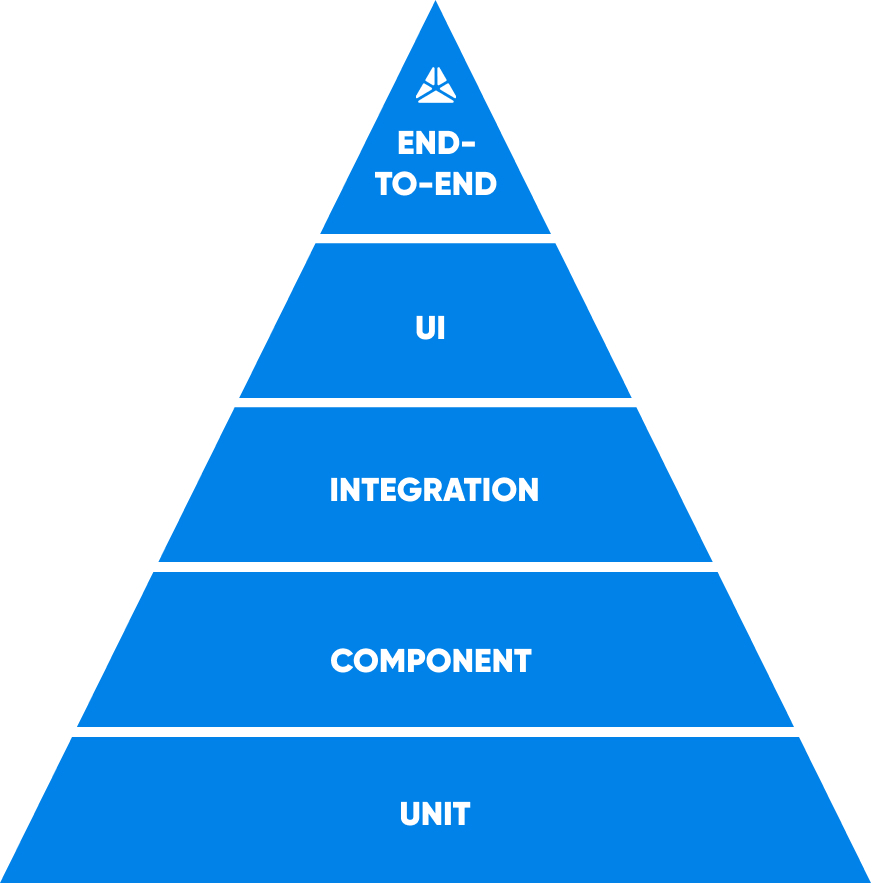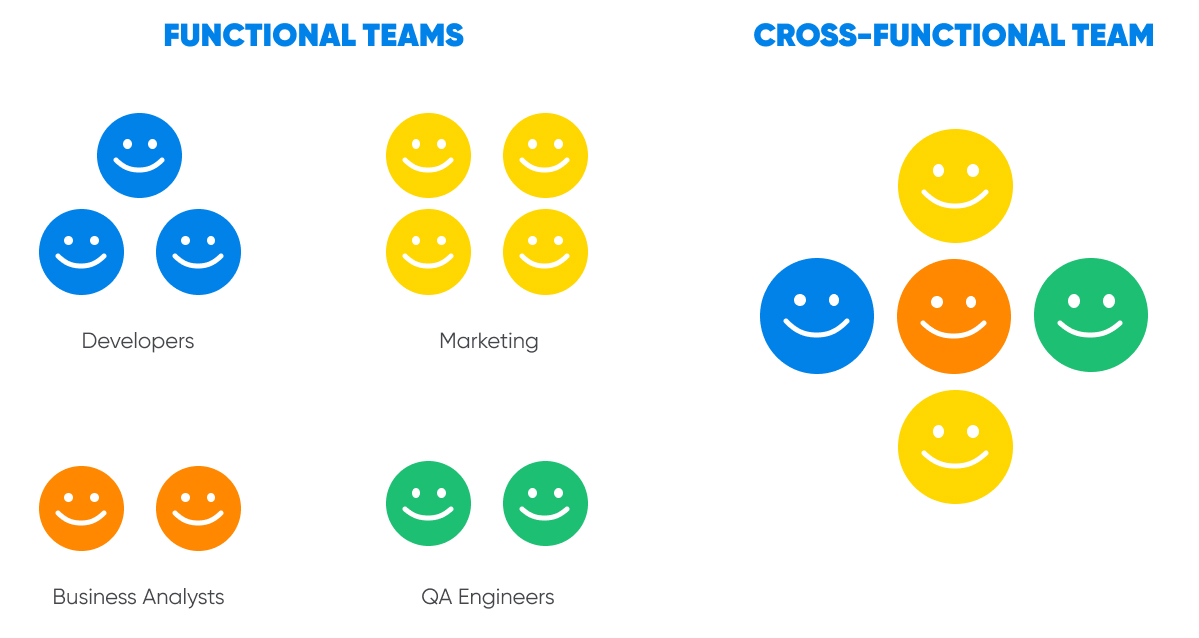In 2023, there are still companies that believe quality assurance is some “extra perk” that can be skipped, especially during harsh times for the world economy. This belief is opposite to what our 20 years of experience in the QA outsourcing market say, and today we will explain why.
Content:
- Why should you invest time and money in developing the QA/QC process?
- How to organize the process of testing from scratch
- How many QA engineers do you need for your project?
- Things to consider when hiring a QA team
- Reasons to outsource QA functions
- How to improve the existing testing processes?
- Reasons to outsource QA functions
- Ways to delegate quality assurance services to third parties
- Why should you choose MWDN as a QA partner?
- Summing up
Why should you invest time and money in developing the QA/QC process?
Challenging economic situations and lack of free money demand vetted decisions and the utmost efficiency of the business processes. Creating an optimized QA/QC process is just about that – cutting costs and automatizing processes. Moreover, the absence of quality assurance is the proven path towards unnecessary expenses on software development.
By implementing correct QA/QC processes, you cut your costs for development. Here’s how it happens. You can divide all technical operations your business requires into three categories.
- The unique ones can be performed only by an experienced and expensive workforce like senior engineers.
- Routine operations can be completed according to some pre-written algorithm and thus can be delegated to less experienced workforce like middle or junior specialists.
- Conveyor operations don’t require any effort from your employees. These are tasks like completing reports according to simple templates.
The task of a QA manager/consultant/architect/partner who wants to optimize your operations and cut your costs will look as follow:
- Get rid of unique operations as much as possible by writing coherent manuals and improving documentation. By doing so, we convert unique operations into routine ones.
- Automize routine operations to make them conveyor-like.
- Robotize conveyor operations so employees don’t have to spend their resources on simple but time-consuming tasks.
But how exactly can we achieve such impressive cost-efficient business goals? To answer this question, let’s check what the process of testing looks like.
How to organize the testing process from scratch?
When QA engineers at MWDN approach a new project, they always consider the business goals of the product and the stage of development or production. We understand that projects that migrate into the cloud, old apps that suffer from downfall and need to reprioritize their functions, startups, and legacy projects will have absolutely different priorities. This is why the first thing every software QA company should do is to learn your business priorities and understand your project and its technical peculiarities.
After that, the testing pyramid should be built. It is a typical model that consists of unit testing, component testing, integration testing, user interface testing, and end-to-end testing.

With this pyramid in mind, your QA engineer or outsourcing company draws a plan for the perfect QA/QC process that will help you bring your project to perfection. Usually, before the testing process begins, the “perfect plan” is halved after evaluating the project’s resources and deadlines.
How many QA engineers do you need for your project?
When we talk in absolute numbers, there’s no one-size-fits-all ratio of developers to QA engineers. Some projects require one QA specialist for every five to six developers, while others require one QA engineer per software developer. If you already have an established team of developers and need to understand how many QA engineers your project will require for the next period, apply the formula based on developers’ capacity.
- First of all, you have to evaluate the overall scope of work of your developers in story points.
- → Next, compose the same scope for QA tasks and analyze their approximate value.
- → After these steps, you will have the total amount of story points for the period.
- → Divide them into sprints, and you will see how many story points you have to cover during every sprint.
- → Divide the total sum of story points by the average velocity of a QA engineer, and you will get the number of people you need for an efficient QA team.
To decide what kind of QA engineers and testers you need, look at the average complexity of your tasks. If most of these tasks are estimated by one, two, three, or five points (which usually means that you have a project within the maintenance stage where all the tests are already written and all you have to do is to make updates according to new requirements), these tasks can be covered by specialists of junior and middle levels. Obviously, the harder your tasks are, the more qualified and experienced engineers you will need.
If your development team consists mostly of senior engineers, you might need fewer QA specialists, as experienced developers compose automation testing for their code to make sure every feature works properly. On the other hand, if most developers you have are not that experienced, their code might require more meticulous testing; hence, you might need more QA engineers.
Things to consider when hiring a QA team
There are three main categories to look at when looking for a tech specialist. Technology stack, aka hard skills, soft skills, and motivation. Our hands-on experience in recruiting tech talent shows that the level of motivation of your applicants is vital. Motivation is easily evaluated during interviews with candidates. To see if your candidate will fit the job, ask them questions about their involvement in their previous projects and their willingness to learn new things. Have they tried to improve the existing processes? Have they increased their stack of technologies in recent years?
Another important thing to consider is, again, the business goals and priorities of your project. Check the candidates for the experience that will be relevant to your project and its stage of development.
The background of your testers is yet another point to focus on. Here is what MWDN QA Engineer, Anna Okhremenko, says about switchers in testing:

What about AI? Can’t it replace QA engineers?
The task of every specialist who wants to optimize their working processes is to integrate next-generation technologies into their work. Artificial intelligence, particularly, ChatGPT, at some point might be used to help engineers convert unique tasks into routine tasks and routine operations into conveyor operations. Artificial intelligence might be useful for the automatization of some processes, including quality assurance; however, as of April 2023, an AI tool will still require an experienced QA engineer to lead it through even the simplest tasks.
How to improve the existing processes of testing?
Here’s a quick checklist that will help you optimize your QA/QC process:
- Pick the right people for your project. The better the match, the more efficient cooperation you will get. If your company faces difficulties with searching, recruiting, and hiring tech talent, consider outsourcing recruiting and HR functions to a reliable partner.
- Choose the right tools. The more popular your tech stack is, the better. Try to avoid too old technologies or those which haven’t yet proven their reliability.
- Improve documentation. If there are no manuals and algorithms on what to do in every particular case, the knowledge of one employee remains only in their head. Share the knowledge by writing coherent documentation on development, tests, and test reports.
- Maximize the automatization coverage.
- Minimize the number of unique operations on the project.
- Take time to control the quality of testing. It can be done through regular retrospectives and the maximal involvement of QA engineers in the improvement of working processes.
Sometimes, your company may lack the expertise, time, or resources to focus on quality assurance. Fortunately, you can delegate this part of your software development to reliable QA outsourcing services.
Reasons to outsource QA functions
Quality assurance and quality control is a way to guarantee the stability, reliability, and profitability of your software. Outsource this function to a third party if, for some reason, you cannot effectively perform it in-house. Here are some other arguments why you should consider delegating quality assurance:
- Increase the pace of technology and digital transformation
- Get access to new capabilities
- Manage risks (particularly the risk of software failure or security flaws)
- Leverage expertise
- Save costs
- Fill in a talent gap
Ways to delegate quality assurance services to third parties
Today, there are three main ways to delegate IT services, including QA/QC processes to third parties. Each one of them has its strong points and its flaws. Have a look.
Traditional outsourcing
Let’s assume you develop software in-house but ask a third party to do testing for you. In this case, we’re talking about traditional outsourcing. Even though this business approach provides you with expertise and can result in cost reduction, it might not be the best option, particularly for QA as a separate function.
An established connection between a Developer and a QA engineer can drastically speed up the processes. However, if you choose outsourced QA testing, you will face more difficulties when creating a cross-functional team where your developers and testers can work more closely together.

Creating infrastructure
In 2023, more and more tech companies go beyond outsourcing and try to create sourcing ecosystems where all their IT vendors become strategic partners interested in the growth and development of each other. IT infrastructures are created via Managed Services and Operate Services, which are considered more holistic models compared to traditional outsourcing.
These approaches to outsourcing help create truly innovative solutions and add value to businesses, but they also have one major downfall. Creating infrastructure is a cost-efficient option for companies of the enterprise level, but this is not the best choice for small companies or startups.
Reinforcing existing team
When looking for outsourced software testing services, pay attention to staffing companies. They will help reinforce your existing team of QA engineers with unique specialists with hands-on experience in the field you need. The great benefit of this approach is that you get an expert you need, and they become a part of your team. However, all the organizational and administration questions (like taxes, benefits, vacation, hardware, and office) are taken care of by your outstaffing partner.
Even if you don’t have a QA department, you can opt for this option, as apart from staff augmentation, outstaffing companies can help you create a dedicated team that will work remotely for your project.
Staffing services are a great option both for big and small companies, and this is exactly what MWDN has been busy with for over 20 years.
Why should you choose MWDN as a QA partner?
According to Deloitte Global Outsourcing Survey 2022, customers have a very precise understanding of what they are looking for in their IT vendors.

We understand these demands and work year by year to improve our performance on each of them.
- We are transparent. We have a fixed fee for our services and don’t have hidden payments.
- We have excellent reviews. On Clutch, MWDN has 4.9 out of 5 stars for our professionalism, reliability, and attention to detail.
- We have fields of expertise. Thanks to vast experience, we have a deep understanding of healthcare and medical software, logistics, engineering, cybersecurity, HoReCa, and FinTech.
- We completed hundreds of projects. All of them are living proof of the high professionalism of our tech talent.
- We guarantee clear and frequent communication.
- We have a vast pool of skilled tech talent. Apart from a large database of tech candidates, we promptly search and find engineers according to your demands. Tech specialists are willing to work with MWDN due to its good reputation among employees.

Image source: MWDN Instagram
- We have clearly defined cybersecurity standards.
- We provide innovation contribution. Apart from developers and QA engineers, with our help, you can find specialists in NextGen technologies or hire an R&D team.
- We strive for strategic partnerships. At the beginning of our history, we used to work with the traditional outsourcing model. However, getting more and more experience in software development, we understood that IT outstaffing provides more benefits for our clients and allows us to keep prices for our service at a more reasonable level.
- Talking about prices. Working with MWDN is not only efficient, but it’s also affordable. For example, here are the average salaries of QA Architects in some countries:
- The USA: $142,000 per year
- Great Britain: $82,000 per year
- Canada: $120,000 per year.
With MWDN, you will get a skilled Senior QA Engineer or QA Architect for $66,000 per year (our fee included). This is half the money you would pay to US-based specialists with the same skills.
Summing up
In April 2023, we are at the front door (or the hall) of the economic crisis. When the economy is up, companies take risks more often. They invest in innovation, try new technologies, and hire more junior specialists to nurture them in-house. During a crisis, companies focus on effectiveness, cutting costs for processes, and process automatization. You can do so only by hiring highly skilled, experienced, and perfectly vetted specialists. This is exactly what we offer you to do today. Invest in QA process automatization by hiring top QA engineers from a reliable partner. Like MWDN.
Content
- 1 Why should you invest time and money in developing the QA/QC process?
- 2 How to organize the testing process from scratch?
- 3 How many QA engineers do you need for your project?
- 4 Things to consider when hiring a QA team
- 5 How to improve the existing processes of testing?
- 6 Reasons to outsource QA functions
- 7
- 8 Ways to delegate quality assurance services to third parties
- 9 Why should you choose MWDN as a QA partner?
- 10 Summing up

